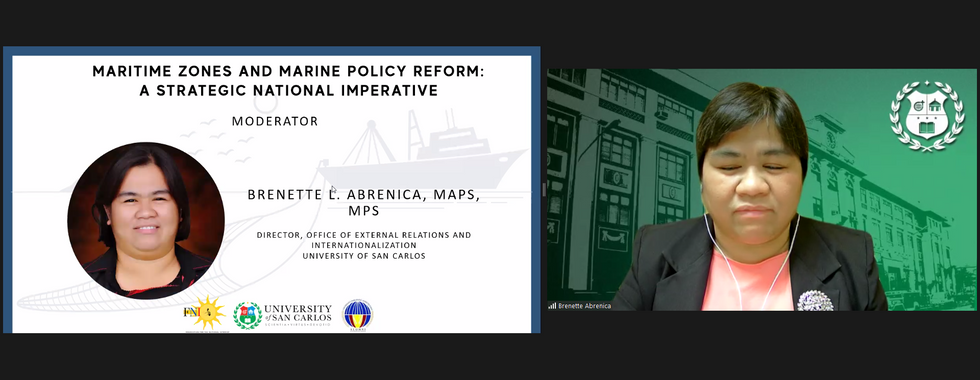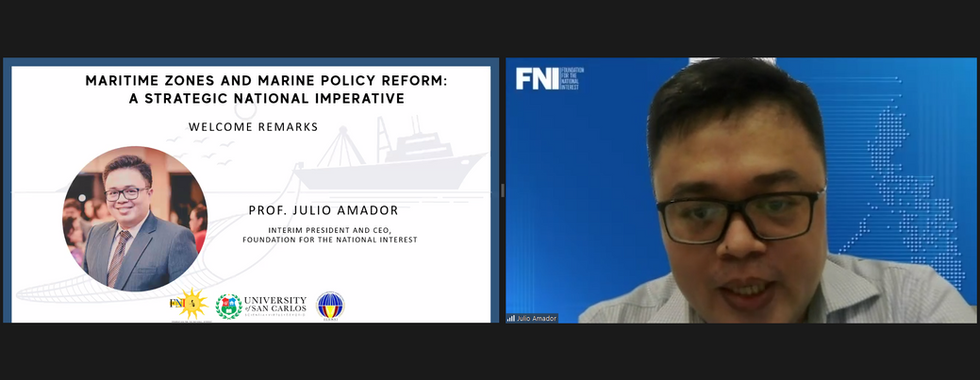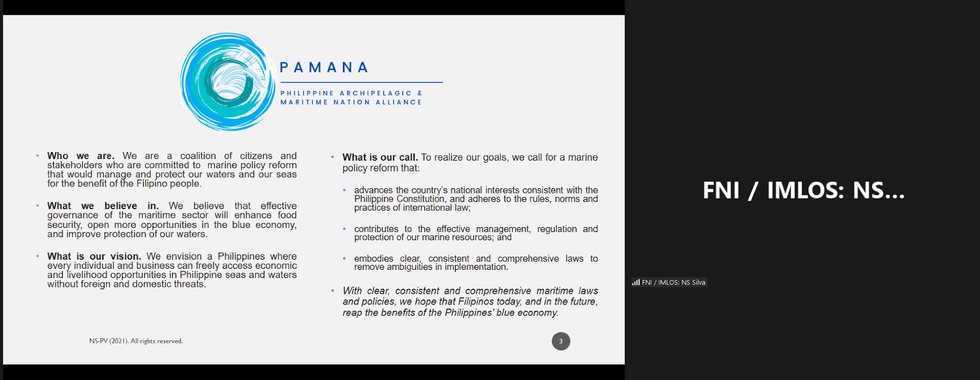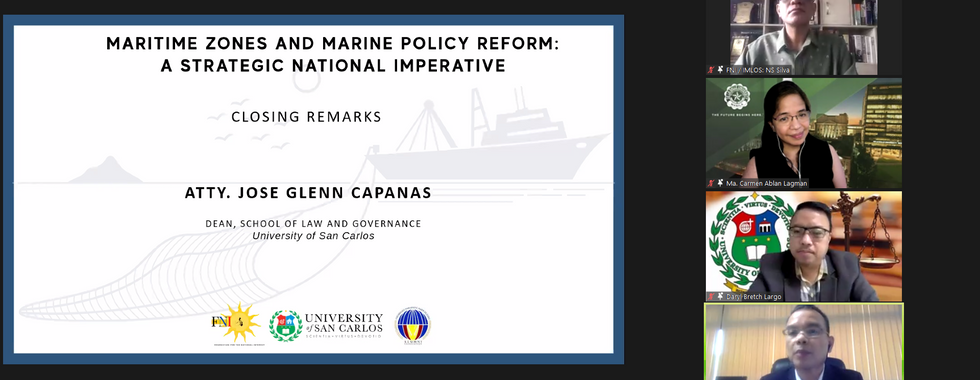9th KM: FNI, USC, & FPAAA partner for 2021 MANA M0
- Foundation for the National Interest PH
- Sep 30, 2021
- 3 min read
Updated: Oct 13, 2021
[PRESS RELEASE]
In celebration of the Maritime and Archipelagic Nation Awareness Month (MANA Mo), the Foundation for the National Interest (FNI) and the University of San Carlos (USC), together with the Fulbright Philippine American Alumni Association (FPAAA) and the Philippine Archipelagic and Maritime Nation Alliance (PAMANA) conducted a Kwentong Mandaragat webinar entitled “Maritime Zones and Marine Policy Reform: A Strategic National Imperative” on September 29, 2021.
Two distinguished speakers gave their insights on the strategic importance of the proposed Maritime Zones Law in pursuing the country’s national interests: Atty. Neil Silva, a Constitutional law professor in the UP College of Law and part of the UP Law Center Institute for Maritime Affairs and the Law of the Sea, and Dr. Carmen Ablan-Lagman, a marine scientist and Biology professor in De La Salle University-Manila.
Atty. Silva discussed the strategic importance of maritime areas. “The sea is not only a source of revenue resources. It is also a channel by which living resources reach the Philippines”, Atty. Silva said. He mentioned how aspects such as food security, environmental security, economic security, and energy security are adversely affected by the Philippines’ outdated and contradictory laws. He then emphasized the need for the country to have a Maritime Zones Law not only to comply with the United Convention on the Law of the Seas (UNCLOS) and international law, but to improve maritime governance in the country. Atty. Silva pointed out that the “piecemeal harmonization” and the contradictory laws of the Philippines are not only hampering domestic enforcement but have been used by foreign power competitors like China to counter-argue the 2016 Arbitration Award.
Also with respect to current laws, Dr. Lagman highlighted the disparity in how South China Sea states legislated in terms of defining the fishing zones, the nature of vessels, the quality of gear, the laws on near-shore and commercial fishers, and environmental protection. She also presented compounding issues of climate change and marine pollution, specifically increase in sea temperature that will force fish to abandon traditional habitats and will definitely impact the industries. Thus, “there is a need to develop regional-level policies targeted toward small-scale fisheries because it is unfortunate that we usually try to depict them as the destroyers”, Dr. Lagman said. The noted scientist emphasized the importance of anchoring rights and responsibilities enumerated in UNCLOS as well as international laws that can be used to govern the region, saying that “We must be able to establish transboundary areas of joint management and protection and bring into discussions other international policy instruments.”
Atty. Daryl Bretch Largo, LLM, Assistant Dean of USC’s School of Law and Governance, as the discussant, synthesized the presentations by saying that enacting a Maritime Zones Law will not only add to the country’s international credibility, and encourage regional cooperation, but also strengthen its claims in the West Philippine Sea. He posited that potential challenges lie in the ambiguity of definitions, the priorities of the political administration, and the enforcement capability.
The event was well-represented with government officials, experts, maritime-related agencies, professors, and students from various universities nationwide attending. Student participants were from USC, Far Eastern University, Polytechnic University of the Philippines, University of Southern Mindanao, Cavite State University, Northwestern Mindanao State College of Science and Technology, Benguet State University, Bukidnon State University, and Capiz State University.
Screenshots of the event found below.
END





















Comments